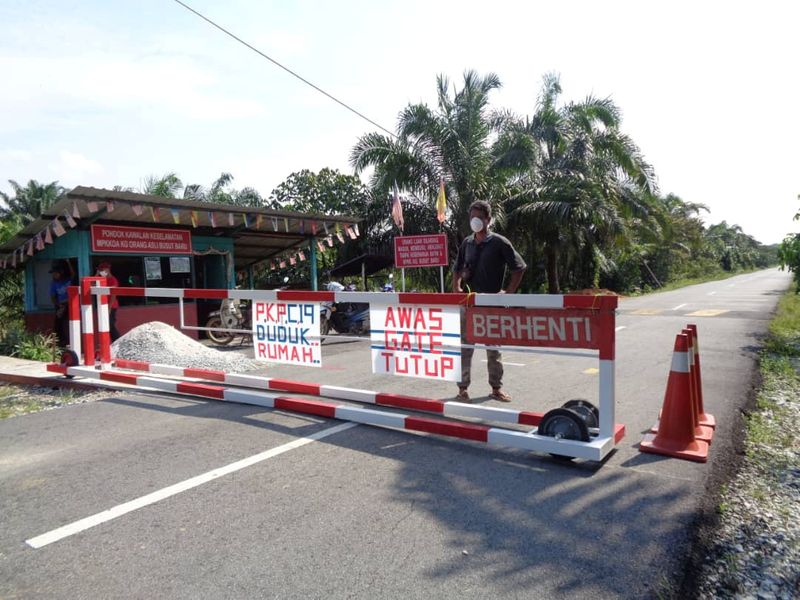
FILE PHOTO: Local villager Arifin Anak Mingok stands behind a roadblock set up in Busut Baru village in Hulu Langat, Selangor State, Malaysia on April 2, 2020. Picture taken April 2, 2020. Samsul Anak Senin via REUTERS.
April 10, 2020
By Joseph Sipalan and Rozanna Latiff
KUALA LUMPUR (Reuters) – Malaysia extended movement and travel restrictions on Friday for another two weeks until April 28 to stem the coronavirus outbreak even as the country reported a slowdown in new infections.
The curbs, imposed on March 18, were originally set to end on April 14. Malaysia has the highest number of coronavirus infections in Southeast Asia, reporting 4,346 cases with 70 deaths as of noon on Friday.
“It may take a few months before we can say we are free of the virus,” Prime Minister Muhyiddin Yassin said in a televised address.
Muhyiddin said Malaysia had done well to keep the infection rate at 7% of patients screened, which is below the 10% benchmark set by the World Health Organisation (WHO), while its 1.6% death rate is well below the 5.8% global average.
However, continued curbs are necessary to break the chain of transmission, while the government places a greater focus on groups that are the sources of infection, the prime minister said.
This may include continued suspension of schools, though some business sectors will be given limited approval to resume operations subject to strict health and movement regulations.
Enforcement agencies will also tighten controls at the country’s borders to clamp down on possible entry by undocumented migrants, who Muhyiddin said could end up being another source of infection.
Separately, the health ministry said Malaysia had likely experienced its peak in cases. The country saw its highest daily jump on March 26 when 235 new infections were reported.
“Our prediction shows that our trend is quite stable really,” director-general of health Noor Hisham Abdullah told reporters. “We do not see any exponential surge.”
Noor Hisham said a medical team from China will be visiting Malaysia in two weeks to share their experiences in containing the virus.
“Some of the initiatives they have done in treating the virus are unprecedented, so we would like to learn from them… and see how we can collaborate in terms of research,” he said.
(Reporting by Joseph Sipalan and Rozanna Latiff; Editing by Himani Sarkar and Ed Osmond)

